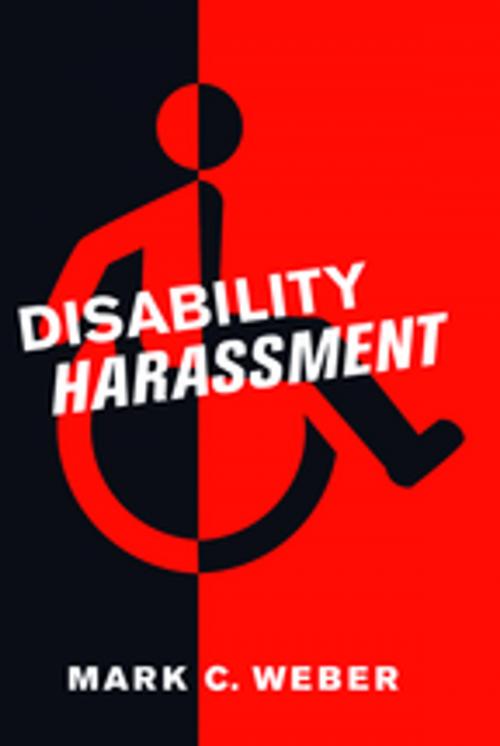| Author: | Mark C. Weber | ISBN: | 9780814784686 |
| Publisher: | NYU Press | Publication: | March 1, 2007 |
| Imprint: | NYU Press | Language: | English |
| Author: | Mark C. Weber |
| ISBN: | 9780814784686 |
| Publisher: | NYU Press |
| Publication: | March 1, 2007 |
| Imprint: | NYU Press |
| Language: | English |
Building on the insights of both disability studies and civil rights scholars, Mark C. Weber frames his examination of disability harassment on the premise that disabled people are members of a minority group that must negotiate an artificial yet often damaging environment of physical and attitudinal barriers. The book considers courts’ approaches to the problem of disability harassment, particularly the application of an analogy to race and sex harassment and the development of legal remedies and policy reforms under the Americans with Disabilities Act (ADA).
While litigation under the ADA has addressed discrimination in public accommodations, employment, and education, Weber points out that the law has done little to combat disability harassment. He recommends that arguments based on unused provisions of the ADA should be developed and new legal remedies advanced to address the problem. Disability Harassment also draws on case law to explore special problems of harassment in the public schools, and closes with an appeal to judges and lawmakers for expanded legal protection against harassment.
Building on the insights of both disability studies and civil rights scholars, Mark C. Weber frames his examination of disability harassment on the premise that disabled people are members of a minority group that must negotiate an artificial yet often damaging environment of physical and attitudinal barriers. The book considers courts’ approaches to the problem of disability harassment, particularly the application of an analogy to race and sex harassment and the development of legal remedies and policy reforms under the Americans with Disabilities Act (ADA).
While litigation under the ADA has addressed discrimination in public accommodations, employment, and education, Weber points out that the law has done little to combat disability harassment. He recommends that arguments based on unused provisions of the ADA should be developed and new legal remedies advanced to address the problem. Disability Harassment also draws on case law to explore special problems of harassment in the public schools, and closes with an appeal to judges and lawmakers for expanded legal protection against harassment.















